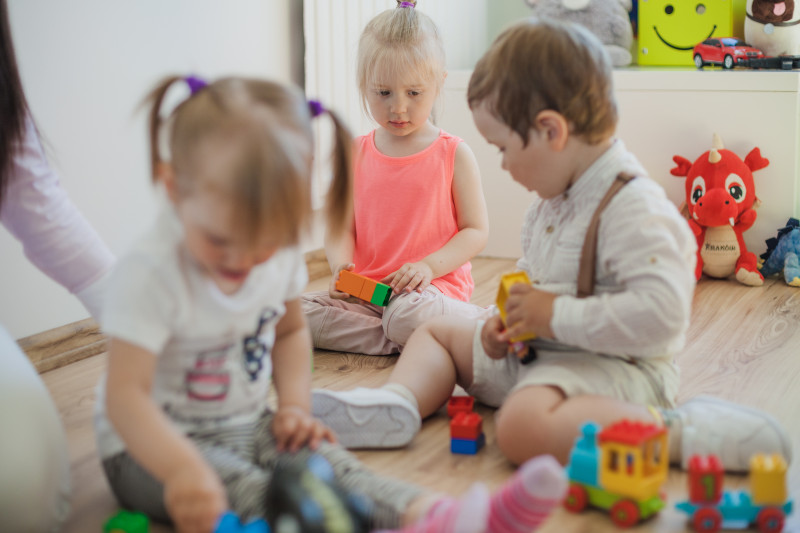This is a sponsored guest post.

As the world continues to change at a rapid pace, our children’s education becomes increasingly important in shaping their future. It is critical to lay a solid foundation for them in order to prepare them for the challenges and opportunities that await them in the coming years. In this article, we will look at nine essential elements that are important for a child’s future educational journey, backed up by fascinating and innovative examples that demonstrate the power of these elements.
#1 Personalized Learning for Individual Brilliance
The cookie-cutter approach to education falls short in a world full of diverse talents and learning styles. By catering to each child’s unique strengths and interests, personalized learning is the key to unlocking their brilliance. Using cutting-edge technologies and data-driven insights, educators can tailor lessons to each student’s pace and preferences, ensuring they remain motivated and engaged throughout their learning journey.
#2 Project-Based Experiences to Ignite Curiosity
Learning should be an exciting adventure full of wonder and discovery. Project-based learning piques young minds’ curiosity and fuels their creative fires. Students learn to think critically, collaborate with peers, and approach problem-solving with ingenuity when they are immersed in hands-on projects and challenges. These learning adventures sow the seeds of lifelong learning and an insatiable thirst for knowledge.
#3 Global Exchange for Empathetic Citizens of Tomorrow
Cultural awareness and empathy are essential traits in today’s interconnected world. Global exchange programs cross borders and bring together young people from all over the world. Students gain a better understanding of different cultures through virtual collaborations, broadening their perspectives and encouraging open-mindedness. These experiences shape future leaders who value diversity and act as caring global citizens.
#4 Emotional Intelligence for Flourishing Relationships
Success in life extends beyond academic achievements; it lies in nurturing emotional intelligence. Emotionally intelligent individuals possess the ability to understand and manage their emotions, empathize with others, and build meaningful relationships. Schools must prioritize social-emotional learning (SEL) to equip students with essential life skills that contribute to personal happiness and success in their future endeavors.
#5 Technological Literacy in the Digital Age
In the digital age, technological literacy is the gateway to endless possibilities. Introducing coding, robotics, and digital literacy programs at an early age empowers kids to navigate the digital realm with confidence and creativity. By embracing technology as a tool for innovation, they become architects of the future, driving progress and reshaping industries.
#6 Empowered Financial Decision-Makers: Nurturing Financial
Literacy Financial literacy is an essential skill often overlooked in traditional education. By introducing financial literacy early on, we equip children with the knowledge and confidence to make informed financial decisions. With practical lessons on budgeting, saving, and investing, they emerge as financially savvy individuals who can manage resources wisely and secure their financial future. The Tuttle Twins economics books are a great way to introduce such concepts to children of young ages.
#7 Guardians of the Planet: Fostering Environmental Stewardship
As climate change looms as a global concern, the urgency to raise environmentally conscious individuals intensifies. Schools must instill environmental stewardship through eco-friendly practices and immersive experiences in nature. By nurturing a love for the planet, students
develop a profound sense of responsibility, becoming advocates for sustainable practices and guardians of Mother Earth.
#8 The Artistic Expressions: Unleashing Creativity in Education
Art is the gateway to imagination, and creativity is the fuel that drives innovation. Emphasizing arts education enriches students' lives, instilling a sense of beauty and wonder. By integrating arts into the curriculum, schools cultivate young minds capable of approaching challenges with innovative perspectives and turning dreams into reality.
#9 A Mindset for Triumph: Embracing Growth and Resilience
A growth mindset sets the stage for triumph in the face of challenges. Encouraging students to embrace failures as opportunities for growth and learning fosters resilience and perseverance. By cultivating a growth mindset, children develop the confidence to explore uncharted territories, knowing that every obstacle is a stepping stone to their success.
Bottom Line
A holistic approach to children's future education involves personalized learning, project-based experiences, global citizenship, emotional intelligence, technological and financial literacy, environmental awareness, arts, a growth mindset, and community engagement.
By incorporating these critical elements into education, we are preparing our children to thrive in an ever-changing world in which their skills, knowledge, and values will shape the future. With these pillars, let us invest in their education so that they can become not only successful professionals but also responsible, compassionate, and impactful global citizens.

Hi there! I am Emily Evert, the owner of Emily Reviews. I am 28 and live in a small town in Michigan with my boyfriend Ryan and our two pugs. I have a large family and I adore my nieces and nephews. I love reading memoirs, and learning about child development and psychology. I love watching The Game of Thrones, Teen Mom, Sister Wives and Veep. I like listening to Jason Isbell, John Prine, and other alt-country or Americana music. I created Emily Reviews as a creative outlet to share my life and the products that I love with others.
This post currently has one response.


















I just read the blog post on EmilyReviews and found it really relatable — it echoed a lot of things I’ve thought or experienced myself. It also got me thinking about how stories and reviews can be powerful tools for education and empowerment, much like what **Yalari** does through providing scholarships and opportunities for Indigenous children.